Your Ideal Outcome: It’s Okay To Change Your Mind
Podcast: Play in new window | Download (Duration: 38:20 — 35.1MB)
Subscribe: Apple Podcasts | Spotify | iHeartRadio | Email | RSS | More
“The wise adapt themselves to circumstances, as water molds itself to the pitcher.” – Chinese Proverb
Things change. Sometimes quickly.
A phone call wakes you. Middle-of-the-night phone calls are never good. Dream jobs aren’t offered at 3 am. Sweepstakes winners aren’t awakened with the news.
Suddenly your life is different. How different depends on the news at the other end of the phone.
There was a pre-phone call ideal outcome. Now there’s a post-phone call ideal outcome. They don’t likely resemble each other.
“Those who cannot change their minds cannot change anything.” – George Bernard Shaw
Other changes – even sudden ones – may not be as dramatic. Or devastating.
But they can still prompt a change in direction. A change in motivation. A change in our ideal outcome.
Have you ever wanted something so badly it consumed you? You thought of it often. You planned. Strategized. Committed yourself to figure it out. Then something changed. A circumstance. A new situation. A new challenge. A new opportunity.
Maybe suddenly, maybe not – your passion diminished. The passion for pursuing that ideal outcome weakened. Maybe it even evaporated.
Because you now have a new ideal outcome. You changed your mind. You adjusted. Adapted. To new information, a new situation or something that prompted you to see things differently.
“Change before you have to.” – Jack Welch
Some dreams die. Others change.
New dreams are born. Maybe. But new directions undoubtedly emerge…dream or no.
What do you most want when it comes to an outcome?
Why?
Are you in this alone or does your ideal outcome involve or include somebody else?
Age, experience, insight, wisdom. These things matter. But their counterparts do, too. Youth. Inexperience. Lack of insight. Foolishness.
That’s why ideal outcomes are personal. Johnny Deep’s ideal outcome would be a massive multi-million dollar judgment against Amber Heard. Ms. Heard’s ideal outcome would be a massive multi-million dollar judgment against Johnny Deep. One or both are going to be horribly disappointed. Maybe one of them will do a celebration dance when this ordeal is over. Maybe both will leave the courthouse slumped shouldered and weeping. Or screaming. That seems more their habit. 😉
Ideal outcomes can be influenced by life’s circumstances, too. Professionally I’ve pursued and sought after a number of outcomes that happened…and many that didn’t. In retrospect, some of the failures served me well because the circumstances changed. Drastically in some cases. If your ideal outcome is an egg sunny side up, but the shell never break and the egg is boiling in water…well, bad news. You won’t be eating a sunny side up egg. But you’ll have a hard-boiled egg. You might want to make it a deviled egg. But it most certainly will never be a sunny side up egg! And you might find that’s to your advantage. I’ll bet you could tell us all about one time – likely more – where that happened to you.
I never wanted to be in business. I wanted to write. To speak. To communicate stories. But I fell in love with music and that method of storytelling. Some kids grabbed guitars or sat at pianos or drumsets. Their ideal outcome was to learn to play. My ideal outcome was different. The urge to play an instrument never dawned on me, except in some wishful thinking kind of way. “Wouldn’t it be great if I could play the guitar reasonably well?”
Instead, I most wanted to listen to music. My passion was enjoying the performance of others. But my passion for listening to music led me to walk in cold to a local hi-fi store and ask for a job selling stereo gear, something I’d never done before. It seemed like a good idea ’cause I knew a lot about stereo gear even though I didn’t own any good stuff. I loved music and the equipment that would faithfully play the records I loved. It was just something I loved. I was a teenager. I never intended it to become a career. But it did.
Sometimes ideal outcomes are like that. They happen even though we didn’t plan on it.
I often wonder what life might have been like if I had made different choices. By the time I got into journalism school, I was wishing I could stay on a college campus teaching some aspect of journalism. For a variety of reasons – life circumstances and other priorities – I knew it wouldn’t be possible. I only dreamed about it, but I continued to go to class and work (at the stereo shop).
Sometimes a degree of success determines the outcome, ideal or not. I was pretty good at selling stereo gear. I was personable, truthful, and honest and I knew the gear really well. The job was straight commission, which meant if I sold something I made something and if I sold nothing, I made nothing. I consistently did well. If you’re gonna do something, do it well. But doing it well meant staying in it. Had I not been good at it I would have certainly been fired or quit. And moved on to something else. Sometimes I wonder what might have happened if I’d been bad at selling stereo gear. What would have been next? We’ll never know. But I do sometimes wonder.
What might have been?
It’s a question we all ask ourselves. Sometimes. And I’m not talking about regret. It’s more about wonder and curiosity.
There’s an elephant in the room when it comes to ideal outcomes. Well, specifically about pursuing ideal outcomes or considering what might we think our ideal outcome will be. In our minds, it’s always ideal. It works out perfectly. It’s successful. Ideal outcomes are never failures. Not in our minds.
But I could have been fired as a young stereo salesman because I was no good at it. And I could have pursued trying to get on the faculty of a journalism school only to be stuck teaching a bunch of 8th graders somewhere. That wasn’t what I had in mind. Not my ideal outcome. Not my dream idea. But it could have turned out that way. Failure is always a possibility. Some might argue, a probability.
Which is why ideal outcomes can – and often SHOULD – change.
We have to have enough self-awareness to know, as best we can. “A man’s gotta know his limitations,” said Harry Callahan, aka Dirty Harry.

I know my limitations. I’m intimately acquainted with them. 😉 But there are some that I honestly am not sure about. Maybe they just exist in my head. They may not be real at all. And I may never really know. What I don’t know won’t hurt me, right? Hardly. It’s what we don’t know that can kill us. So it’s important we get our ideal outcome as right as possible. Not because achieving it is the thing, but because pursuing it is.
It’s the quest to get better. The pursuit of improvement. To make ourselves better. To improve our situation. To put ourselves in a better position. A better place. To be…somewhere better. To be…someone better!
“When something goes wrong in your life, just yell ‘Plot Twist’ and move on.” – Anonymous

Your Ideal Outcome: It’s Okay To Change Your Mind Read More »
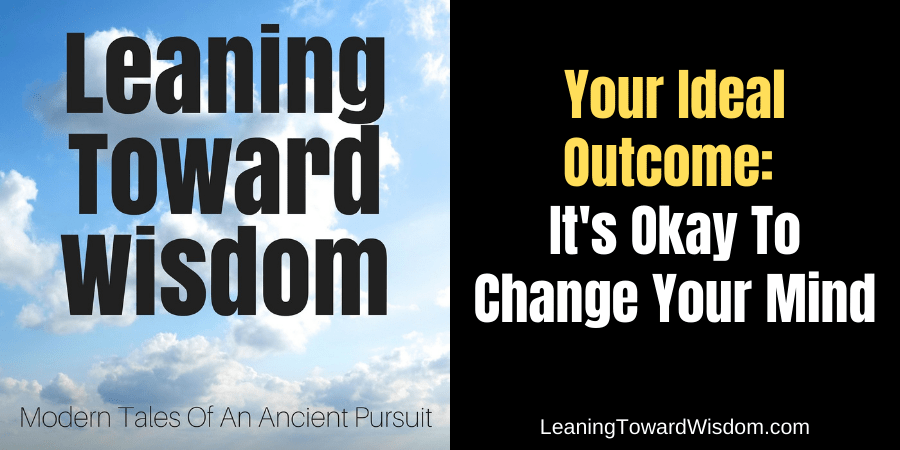
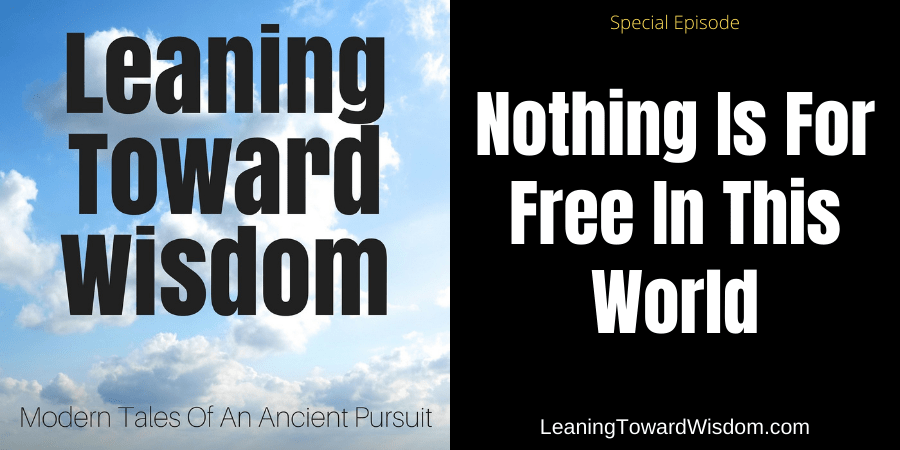
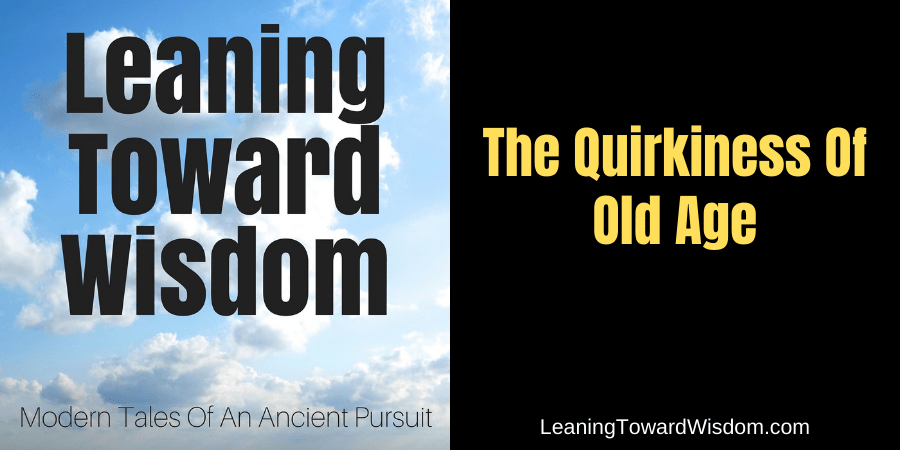
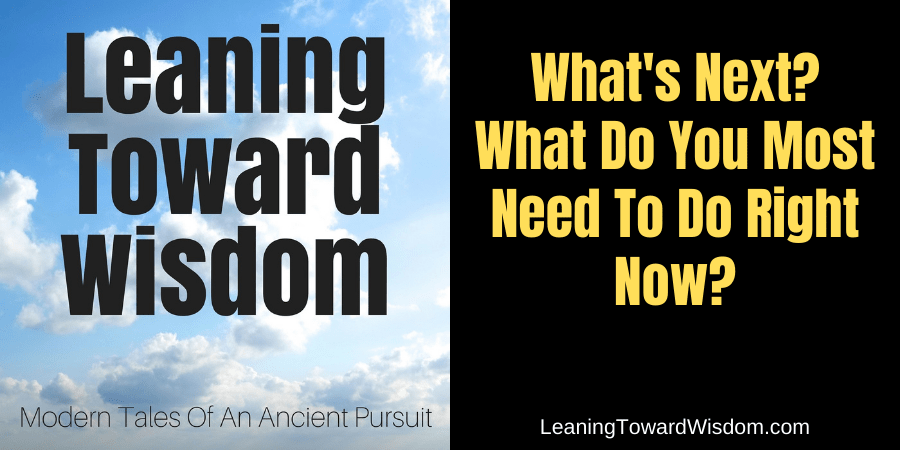
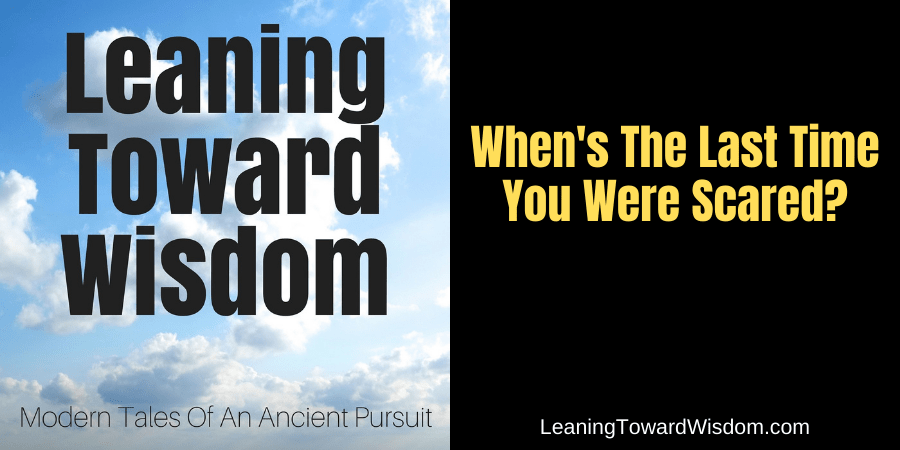
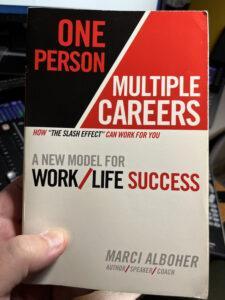 Encore.org
Encore.org